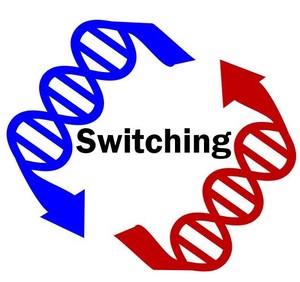The safety of switching a patient under chronic treatment with a reference biological to a biosimilar has been a topic of ongoing debate since the first biosimilar approval in Europe in 2006. The topic sparked further discussion with the arrival of the more complex monoclonal antibody biosimilars. Concerns have been raised that switching between highly similar but non-identical versions of a biological medicine might lead to increased immunogenicity and as such, impact treatment outcomes. The existing stakeholder uncertainty regarding the safety of switching may have been curbing the use of biosimilars in clinical practice and guidance to support healthcare professionals with clinical decision-making is needed.
Safety of switching between reference products and biosimilars
Biosimilars/Research
|
Posted 29/05/2020
 0
Post your comment
0
Post your comment

In response to this, Barbier et al. synthesized and evaluated the available data on switching between biological reference products and biosimilars (or vice versa) across product classes for which a biosimilar has been approved in Europe. They then assessed whether switching impacted efficacy, safety and immunogenicity outcomes via a systematic review [1].
In total, 178 studies comprising up to 21,000 switched patients in a variety of therapeutic areas, were identified in this systematic literature review. The majority of studies related to switching from an antitumour necrosis factor reference product (and more specifically infliximab) to (one of) its biosimilar(s). Studies consisted of both a combination of randomized controlled trials and open-label extension studies (N = 38, 21%) and real-world studies (N = 140, 79%).
Overall, the vast majority of available data did not signal any major differences in clinical efficacy, safety or immunogenicity related to switching. Increased patient discontinuation rates have, however, been reported in some open-label and observational switch studies [2]. Mostly, these findings were attributed to the occurrence of a possible nocebo effect, since the patient-reported change in treatment outcome generally was not corroborated with objective clinical or laboratory measurements [3]. The nocebo effect can be defined as a negative impact on the patient’s perceived treatment outcome, i.e. experienced adverse events or perceived decrease in treatment response, due to his or her negative expectations about the (change in) treatment. The reported lower continuation rate in some real-world studies indicates the need for nocebo effect mitigation strategies when switching, which could, for example, include patient involvement in the switch decision.
Although most studies were not designed to identify differences in rare events, the combined body of data from the switch studies presented in this review does not indicate or corroborate any major safety concerns related to a switch from a reference product to a biosimilar or vice versa. Authors recommend that switching should remain under the supervision of the prescriber and attention should be given towards the mitigation of a possible nocebo effect.
Conflict of interest
The authors of the research paper declared that there was no conflict of interest.
Abstracted by Liese Barbier, PhD Researcher, Regulatory Evaluation and Market Access Biosimilars, Department of Pharmaceutical and Pharmacological Sciences, KU Leuven, Belgium.
References
1. Barbier L, Ebbers H, Declerck P, et al. The efficacy, safety and immunogenicity of switching between reference biopharmaceuticals and biosimilars: a systematic review. Clin Pharmacol Ther. 2020 Mar 31. doi:10.1002/cpt.1836. Epub ahead of print
2. GaBI Online - Generics and Biosimilars Initiative. Switching from reference products to biosimilars: the European perspective [www.gabionline.net]. Mol, Belgium: Pro Pharma Communications International; [cited 2020 May 29]. Available from: www.gabionline.net/Biosimilars/Research/Switching-from-reference-products-to-biosimilars-the-European-perspective
3. GaBI Online - Generics and Biosimilars Initiative. Biosimilars - to switch or not to switch [www.gabionline.net]. Mol, Belgium: Pro Pharma Communications International; [cited 2020 May 29]. Available from: www.gabionline.net/Biosimilars/Research/Biosimilars-to-switch-or-not-to-switch
Permission granted to reproduce for personal and non-commercial use only. All other reproduction, copy or reprinting of all or part of any ‘Content’ found on this website is strictly prohibited without the prior consent of the publisher. Contact the publisher to obtain permission before redistributing.
Copyright – Unless otherwise stated all contents of this website are © 2020 Pro Pharma Communications International. All Rights Reserved.
News
FDA approves Poherdy (first interchangeable pertuzumab) and Armlupeg (pegfilgrastim) biosimilars
EMA recommends approval for insulin glargine biosimilar Ondibta and denosumab biosimilar Osqay
General
Samsung Bioepis wins Pyzchiva case; Regeneron patent rulings threaten foreign biosimilars
Chinese biosimilars go global: growth, partnerships, and challenges
What is the future for the US biosimilar interchangeability designation

Biosimilars/Research Posted 05/06/2025
Biosimilar clinical efficacy studies: are they still necessary?

Biosimilars/Research Posted 27/05/2025
The best selling biotechnology drugs of 2008: the next biosimilars targets








Post your comment